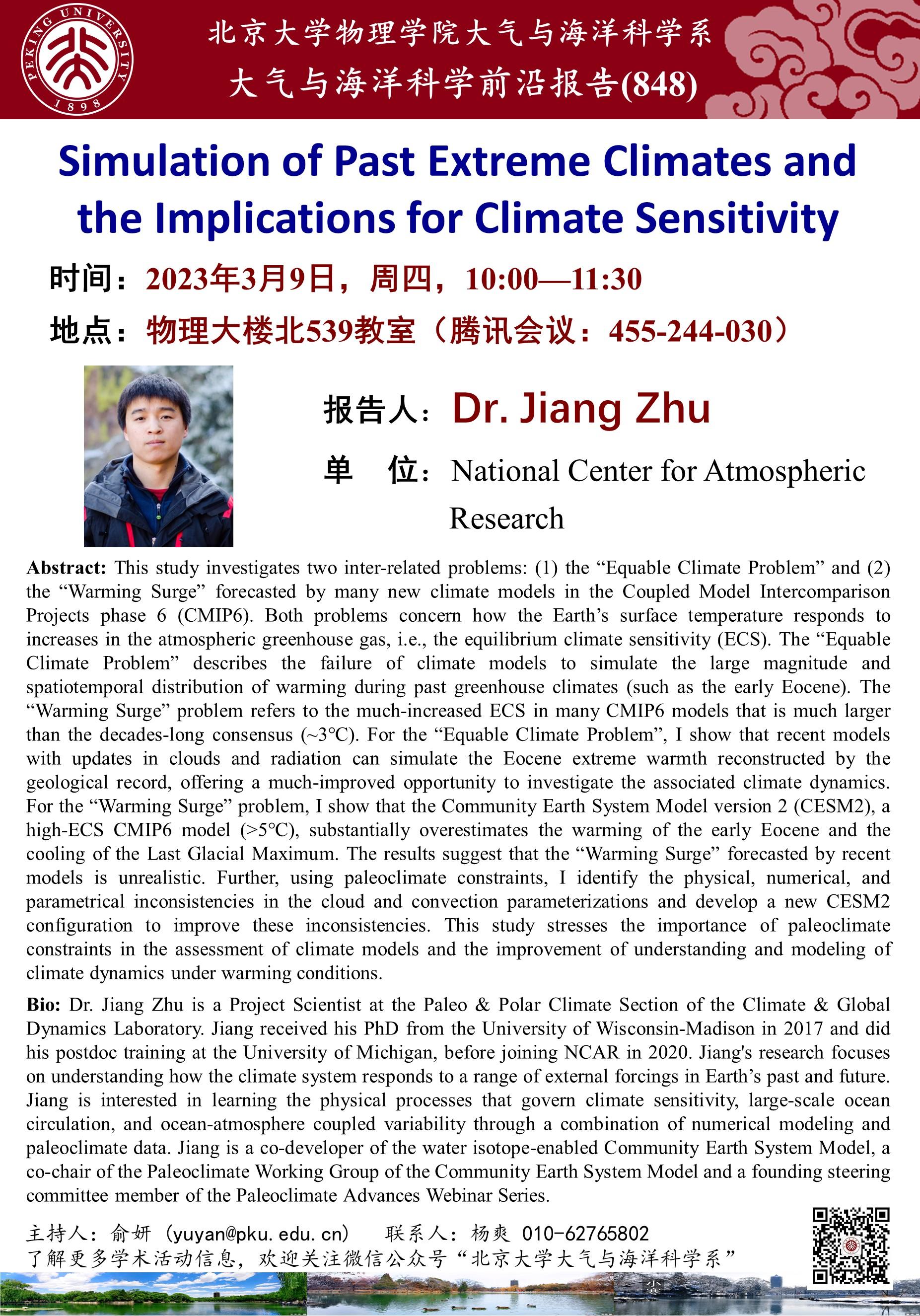Speaker: Dr.Jiang Zhu, National Center for Atmospheric Research
Time: 10:00-11:30 am, March 9, 2023, GMT+8
Venue: Tecent Meeting ID: 455-244-030
Abstract:
This study investigates two inter-related problems: (1) the“Equable Climate Problem" and (2) the“Warming Surge forecasted by many new climate models in the Coupled Model Intercomparison Projects phase 6 (CMIP6). Both problems concern how the Earth's surface temperature responds to increases in the atmospheric greenhouse gas, i.e, the equilibrium climate sensitivity (ECS). The“Equable Climate Problem" describes the failure of climate models to simulate the large magnitude and spatiotemporal distribution of warming during past greenhouse climates (such as the early Eocene).The“Warming Surge problem refers to the much-inereased ECS in many CMIP6 models that is much larger than the decades-long consensus (3℃). For the“Equable Climate Problem, I show that recent models with updates in clouds and radiation can simulate the Eocene extreme warmth reconstructed by the geological record, offering a much-improved opportunity to investigate the associated climate dynamics. For the“Warming Surge problem, I show that the Community Earth System Model version 2(CESM2), a high-ECS CMIP6 model (>5℃), substantially overestimates the warming of the early Eocene and the cooling of the Last Glacial Maximum.The results suggest that the“Warming Surge" forecasted by recent models is unrealistic. Further, using paleoclimate constraints, I identify the physical, numerical, and parametrical inconsistencies in the cloud and convection parameterizations and develop a new CESM2 configuration to improve these inconsistencies. This study stresses the importance of paleoclimate constraints in the assessment of climate models and the improvement of understanding and modeling of climate dynamics under warming conditions.
Biography:
Dr. Jiang Zhu is a Project Scientist at the Paleo & Polar Climate Section of the Climate & Global Dynamics Laboratory. Jiang received his PhD from the University of Wisconsin-Madison in 2017 and did his postdoc training at the University of Michigan, before joining NCAR in 2020. Jiang's research focuses on understanding how the climate system responds to a range of external forcings in Earth’s past and future. Jiang is interested in learning the physical processes that govern climate sensitivity, large-scale ocean circulation, and ocean-atmosphere coupled variability through a combination of numerical modeling and paleoclimate data. Jiang is a co-developer of the water isotope-enabled Community Earth System Model, a co-chair of the Paleoclimate Working Group of the Community Earth System Model and a founding steering committee member of the Paleoclimate Advances Webinar Series.
Source: School of Physics
